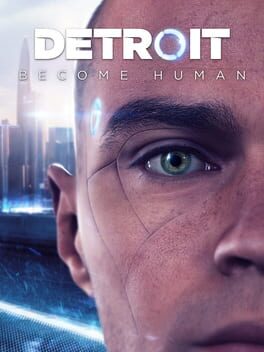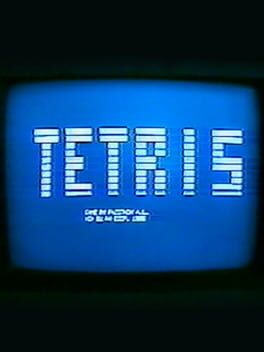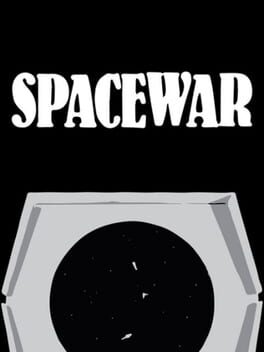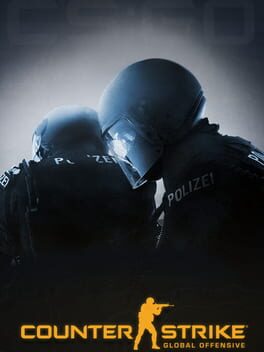surrealshinjokun
1785 Reviews liked by surrealshinjokun
Lookouts
2022
I probably should know by now that these games just aren't for me.
It starts great, then quickly becomes "Chore Simulator" for its first hour of gameplay (literally the first things you do in this game include collecting a delivery, throwing out the trash, tidying up not one but multiple rooms, making breakfast for an old guy). I get what it's supposed to make you feel but it's just boring, and the pretty terrible acting doesn't make it any better. There are a few powerful scenes but it also gets stuck in a weird limbo where the player should feel like they're in control and have complete freedom over the narrative, only for your decisions to seemingly make no difference at all or to break suspension of disbelief due to an unnatural script, bad timing or just player errors (cue me hilariously swinging back and forth between good cop and bad cop during that android interrogation as I couldn't figure out what each on-screen instruction was supposed to do).
I'll dare say that I'd prefer if this had more cutscenes, so I wouldn't be forced to swipe left and right a bunch of times to complete inconsequential tasks, painfully slow walking everywhere or have to wrangle the temperamental camera.
Long story short, even years after the infamous Heavy Rain I feel like this interactive fiction genre just doesn't lend itself well to games. Either make a film or make a game, David Cage. Just choose one and stick to it.
Bonus note, my ridiculous favourite scene (small spoilers, not actual script but that's basically how it played):
- [Connor, curious but tactful]: I saw a photo of a child... That's your dead son right?
- [Anderson, now wistful] Yeah, his name was Cole
- [Connor, without batting an eye] WE'RE NOT MAKING ANY PROGRESS WITH THE INVESTIGATION, THE DEVIANTS HAVE NOTHING IN COMMON
What kind of crap interaction is that? How does that make me feel immersed in the story?
It starts great, then quickly becomes "Chore Simulator" for its first hour of gameplay (literally the first things you do in this game include collecting a delivery, throwing out the trash, tidying up not one but multiple rooms, making breakfast for an old guy). I get what it's supposed to make you feel but it's just boring, and the pretty terrible acting doesn't make it any better. There are a few powerful scenes but it also gets stuck in a weird limbo where the player should feel like they're in control and have complete freedom over the narrative, only for your decisions to seemingly make no difference at all or to break suspension of disbelief due to an unnatural script, bad timing or just player errors (cue me hilariously swinging back and forth between good cop and bad cop during that android interrogation as I couldn't figure out what each on-screen instruction was supposed to do).
I'll dare say that I'd prefer if this had more cutscenes, so I wouldn't be forced to swipe left and right a bunch of times to complete inconsequential tasks, painfully slow walking everywhere or have to wrangle the temperamental camera.
Long story short, even years after the infamous Heavy Rain I feel like this interactive fiction genre just doesn't lend itself well to games. Either make a film or make a game, David Cage. Just choose one and stick to it.
Bonus note, my ridiculous favourite scene (small spoilers, not actual script but that's basically how it played):
- [Connor, curious but tactful]: I saw a photo of a child... That's your dead son right?
- [Anderson, now wistful] Yeah, his name was Cole
- [Connor, without batting an eye] WE'RE NOT MAKING ANY PROGRESS WITH THE INVESTIGATION, THE DEVIANTS HAVE NOTHING IN COMMON
What kind of crap interaction is that? How does that make me feel immersed in the story?
Tetris
1985
Y'know, I'm not quite sure how I should rate and review this game. If I compare this to the many other versions of Tetris out there, it is quite obvious that this is one of the worst ones. From the horrible, ear-piercing beeps after every input you make on the keyboard, to the oh so slow updating of the pieces, to the pitiful amount of inputs the computer recognizes per second, it is not good by todays standards. I mean, to put in perspective, I played one game of Tetris for 37 minutes straight, and I only got to 150 lines. It's really slow.
However. This is in no way a fault of Alexey Pajitnov, but rather the computer that he programmed this on, that being the Electronika 60. Because of this, I won't dock any stars by those admitted negatives I have listed, because quite frankly, they were simply outside of his control. We have to remember the constraints in which he was set in while programming Tetris, and make an effort not to negatively rate this first version due to these constraints.
That being said, for the first version of Tetris, it's pretty much already all here. You have the same matrix dimensions that we still have today, the same tetriminoes, the speed increasing after 10 lines, the next box, all of it. The only things really missing are the fact the next box only shows one piece, there's only one rotation button, and technically the 7-bag next piece system. I won't count that last one however, because quite frankly, while 7-bag is nice, it's definitely not as sorely needed as the other two.
Everything fundamentally works almost identically to the uber-popular NES and GameBoy versions of Tetris (besides the GameBoy versions broken RNG of course) besides the scoring system and less speed levels, and that really is a testament to just how simple but elegant this game is. The only possible complaint I could have besides things that are due to the computer itself, not the program, is that there weren't enough speed levels, and I felt like it capped at too slow of a speed, and that I could really play infinitely long if I wished to.
That gradual increase of speed levels up to the point it's near impossible to play really is basically a staple of Tetris in my opinion, and it's pretty much at it's best in the NES version. Once you reach level 29, the game has what's been dubbed a "kill-screen", in which the blocks move so fast, that the usual method of play is literally impossible once you get to this point. Now, in the over 30 years since the game has released, there have been methods discovered by the NES Tetris community to actually tap fast enough to competently play in the kill-screen, but that's something to be further discussed a different time. The point is, that cap where the game really forces you to stop, is a truly great feature of NES Tetris, and most other Tetris games.
Granted, however, the main reason this kill-screen is actually a driving factor to just keep playing and getting better, and by extension the reason one is driven to actually try and complete Tetrises instead of many, many singles and doubles, is the scoring system, which is seemingly absent in this version of the game.
I previously had a full two paragraphs talking about the importance of the scoring system, and how it is fundamentally required in order to give Tetris any sort of replayability. I then realized that once you top out, the Russian that's added to the screen afterward is actually asking me to put my name, and then it will show you your full score. I did not know this until after I had already closed my window of 150 lines, so I guess we'll never know what score I got.
I also said in the now-deleted two paragraphs how because the speed feels so slow as a cap, and how the score is absent, I cannot put this as a perfect rating. I took a half-star off for both of those features. Now that I know of the score's non-absence, I feel okay with adding a half-star, bringing this up to 4.5.
I would also like to mention how when speaking of how slow this game is, I would learn that at least part of it was simply due to the simulator I was using, and not totally to the fault of the computer itself, when playing on original hardware. I do still believe though, that the speed is a bit slow on original hardware, and I do think I'll stand by those statements, just not to the same exaggerated tone I may or may not have portrayed earlier in this review.
I don't think it's perfect, but I should say as a disclaimer that it's not like it was meant to be. After all, this version was never put out to the public, and was merely created purely for Alexey's own enjoyment. I don't think he could've known the influence that Tetris would have on the video game market when he was first programming it, and I definitely don't think he was aiming to make the perfect video game while making it. That being said, the fact this game is still so incredibly popular, addicting, and true-to-form so many years later, cannot be understated.
However. This is in no way a fault of Alexey Pajitnov, but rather the computer that he programmed this on, that being the Electronika 60. Because of this, I won't dock any stars by those admitted negatives I have listed, because quite frankly, they were simply outside of his control. We have to remember the constraints in which he was set in while programming Tetris, and make an effort not to negatively rate this first version due to these constraints.
That being said, for the first version of Tetris, it's pretty much already all here. You have the same matrix dimensions that we still have today, the same tetriminoes, the speed increasing after 10 lines, the next box, all of it. The only things really missing are the fact the next box only shows one piece, there's only one rotation button, and technically the 7-bag next piece system. I won't count that last one however, because quite frankly, while 7-bag is nice, it's definitely not as sorely needed as the other two.
Everything fundamentally works almost identically to the uber-popular NES and GameBoy versions of Tetris (besides the GameBoy versions broken RNG of course) besides the scoring system and less speed levels, and that really is a testament to just how simple but elegant this game is. The only possible complaint I could have besides things that are due to the computer itself, not the program, is that there weren't enough speed levels, and I felt like it capped at too slow of a speed, and that I could really play infinitely long if I wished to.
That gradual increase of speed levels up to the point it's near impossible to play really is basically a staple of Tetris in my opinion, and it's pretty much at it's best in the NES version. Once you reach level 29, the game has what's been dubbed a "kill-screen", in which the blocks move so fast, that the usual method of play is literally impossible once you get to this point. Now, in the over 30 years since the game has released, there have been methods discovered by the NES Tetris community to actually tap fast enough to competently play in the kill-screen, but that's something to be further discussed a different time. The point is, that cap where the game really forces you to stop, is a truly great feature of NES Tetris, and most other Tetris games.
Granted, however, the main reason this kill-screen is actually a driving factor to just keep playing and getting better, and by extension the reason one is driven to actually try and complete Tetrises instead of many, many singles and doubles, is the scoring system, which is seemingly absent in this version of the game.
I previously had a full two paragraphs talking about the importance of the scoring system, and how it is fundamentally required in order to give Tetris any sort of replayability. I then realized that once you top out, the Russian that's added to the screen afterward is actually asking me to put my name, and then it will show you your full score. I did not know this until after I had already closed my window of 150 lines, so I guess we'll never know what score I got.
I also said in the now-deleted two paragraphs how because the speed feels so slow as a cap, and how the score is absent, I cannot put this as a perfect rating. I took a half-star off for both of those features. Now that I know of the score's non-absence, I feel okay with adding a half-star, bringing this up to 4.5.
I would also like to mention how when speaking of how slow this game is, I would learn that at least part of it was simply due to the simulator I was using, and not totally to the fault of the computer itself, when playing on original hardware. I do still believe though, that the speed is a bit slow on original hardware, and I do think I'll stand by those statements, just not to the same exaggerated tone I may or may not have portrayed earlier in this review.
I don't think it's perfect, but I should say as a disclaimer that it's not like it was meant to be. After all, this version was never put out to the public, and was merely created purely for Alexey's own enjoyment. I don't think he could've known the influence that Tetris would have on the video game market when he was first programming it, and I definitely don't think he was aiming to make the perfect video game while making it. That being said, the fact this game is still so incredibly popular, addicting, and true-to-form so many years later, cannot be understated.
Tetris
1985
This version is now playable on this website thanks to the pretty good movie released this year.
https://tetris.com/tetris-e60/
One of the most important games ever made.
https://tetris.com/tetris-e60/
One of the most important games ever made.
Tetris
1985
Tetris
1985
Tetris
1985
The first perfect video game. Alexey Pajitnov created a masterpiece with Tetris by harnessing the power of the video game format to create an endless puzzle loop that is simple for anyone to pickup but keeps you coming back for that sweet sweet dopamine hit when your clear a line. It's just brilliant and deserves to sit in the pantheon of humanity's greatest games with the likes of Chess and Go.
Tetris
1985
Much has been said about the historicity of Tetris and its many iterations, but I find the very original text-based graphics version from 1984 to be the most charming. If I was committed to grinding this as a pseudo-sport, to improve my logic center and simple problem-solving speed, I'd likely opt for one of the later titles, probably Tetris 2000 or something based off of that for what little I know; but I don't really care to, it's just an extremely fundamentally well-made puzzle game with a background that frequently births inspiration. Bored, and a few lines of code later... Tetris!
You can play a recreation of this 1984 original here,, as well as Tetris Holdings' tribute to the original. I prefer the presentation of the first here, but the second is good too.
You can play a recreation of this 1984 original here,, as well as Tetris Holdings' tribute to the original. I prefer the presentation of the first here, but the second is good too.
Spacewar!
1962
One of the earliest video games, I like it mainly because of my fascination derived from what I read and watched regarding its development. Honestly, considering the year of its release I cannot help but feel a deep sense of wonder also on the gameplay side.
On one hand, it's just a game where two players pilot two ships that can be easily destroyed by a single well aimed shot (or colliding with the celestial body in the center of the screen). Well, I don't give a shit.
Being a big fan of Sci-Fi novels, Steve Russell decided that the PDP-1 would be the perfect machine to make a combination of a Sci-Fi B-movie and a $120000 toy in which two people could face off in an lethal space duel.
Spacewar! was a revolutionary game in many ways, starting from the simulation of a gravitational field that constantly attracts the two players towards the center and that forces you to plan and adopt strategies in anticipation of the actions that the opponent will implement because of gravity as an uncontrollable external variable. Simple yet wonderful the star map that serves as a background (made by Peter Samson, who wrote a program based on real star charts - Expensive Planetarium) and whose stars serve as spacemarks for the player; ingenious the implementation of certain mechanics, such as the wraparound, a limited amount of fuel and ammos (31 in total) or the provision of a cooldown system (so that players could not abuse too much of their weapons).
I want to pay particular attention to the hyperspace mechanic, which allows a player in trouble to avoid an enemy assault by rematerializing in a random point on the screen (yes, there's a chance that you could materialize on the celestial body): interesting also the fact that sometimes it may not activate at all and that it is better not to abuse it since an excessive use increases the probability that your ship will self-destruct. Fascinating that they were able to create an animation that mimicked a spatiotemporal distortion, so that when the ship jumped it left behind what was called a Minskytron signature (in reference to Marvin Minsky's Three Position Display).
The icing on the cake is the fact that the game was what we would now call open source: It was never patented since Russell and colleagues wanted to leave it up to anyone to edit or rewrite It as they saw fit.
On one hand, it's just a game where two players pilot two ships that can be easily destroyed by a single well aimed shot (or colliding with the celestial body in the center of the screen). Well, I don't give a shit.
Being a big fan of Sci-Fi novels, Steve Russell decided that the PDP-1 would be the perfect machine to make a combination of a Sci-Fi B-movie and a $120000 toy in which two people could face off in an lethal space duel.
Spacewar! was a revolutionary game in many ways, starting from the simulation of a gravitational field that constantly attracts the two players towards the center and that forces you to plan and adopt strategies in anticipation of the actions that the opponent will implement because of gravity as an uncontrollable external variable. Simple yet wonderful the star map that serves as a background (made by Peter Samson, who wrote a program based on real star charts - Expensive Planetarium) and whose stars serve as spacemarks for the player; ingenious the implementation of certain mechanics, such as the wraparound, a limited amount of fuel and ammos (31 in total) or the provision of a cooldown system (so that players could not abuse too much of their weapons).
I want to pay particular attention to the hyperspace mechanic, which allows a player in trouble to avoid an enemy assault by rematerializing in a random point on the screen (yes, there's a chance that you could materialize on the celestial body): interesting also the fact that sometimes it may not activate at all and that it is better not to abuse it since an excessive use increases the probability that your ship will self-destruct. Fascinating that they were able to create an animation that mimicked a spatiotemporal distortion, so that when the ship jumped it left behind what was called a Minskytron signature (in reference to Marvin Minsky's Three Position Display).
The icing on the cake is the fact that the game was what we would now call open source: It was never patented since Russell and colleagues wanted to leave it up to anyone to edit or rewrite It as they saw fit.




